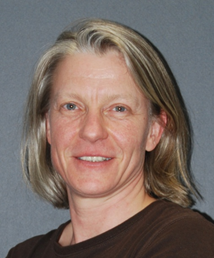
Center for Physiology and Pharmacology (Institute of Vascular Biology and Thrombosis Research)
Position: Research Associate (Postdoc)
ORCID: 0000 0002 8380 9555
T +43 1 40160-31420/31428
ulrike.resch@meduniwien.ac.at
Keywords
Cell Communication; Endothelial Cells; Extracellular Fluid; Host-Pathogen Interactions; Inflammation; Innate Immunity; Oxidative Stress; Proteomics
Research group(s)
- CECAD/CMMC Proteomics Facility
Research Area: Quantitative methods, such as label-free or based on stable isotope tagging, are well established as are key techniques for the analysis of dynamic changes of protein patterns in complex biological backgrounds.In addition, quantitative approaches are used for sensitive and accurate identification of interacting proteins and structural details of protein complexes. Finally, the Facility offers expert analyses of protein profiles and post-translational modifications (PTM).
Members: - Competence Center of Oral Biology
Head: Reinhard Gruber
Research Area: The Competence Center Oral Biology is involved in dental research and training. The work is done in an interdisciplinary team with national and international cooperation, integrating academia and industry.
Members: - Oxidative Stess, OSE, EVs, Vesicles, Biomarkers, Proteomics
Head: Ulrike Resch
Research Area: One of my main research focus is to understand cause and consequence of oxidative stress in endothelial dysfunction. Another research focus is to investigate physico-chemical- and biochemical properties of pro-and eukaryotic membrane vesicles (EVs).
Members: - Proteomics Core Facility
Head: Klaus Kratochwill
Research Area: The mission of the Proteomics Core Facility at the Medical University of Vienna is to provide the researchers at the Medical University of Vienna with consulting, teaching, protein analysis services and quantitative method development.
Members: - Serpins
Members: - Vienna Platelet Laboratories
Head: Alice Assinger
Research Area: Platelets and microvesicles in infection, inflammation and tissue regeneration
Members:
Research interests
One of my research focus is to understand cause and consequence of inflammation, which impacts health, life quality and longevity.
Central to me appears endothelial dysfunction, instigated by endogenous lipid and carbohydrate metabolic disorders (atherosclerosis, diabetes) and exogenous threats (bacterial- and viral infection, environmental poisons), altogether leading to inflammation, organelle dysfunction, oxidative stress and cell death.
Thus, it is important to understand mechanisms promoting the resolution of inflammation. In this context, free radical mediated damage of lipids and proteins, the generation of DAMPs and neoantigens (oxidation specific epitopes, OSE) link innate and adaptive immune responses. Therefore, mechanisms restoring a redox balance need to be investigated in more detail.
Another research focus is to investigate physico-chemical- and biochemical properties of extracellular vesicles (EVs).
These nano-sized, lipid-bilayered structures represent universal inter-and intracellular communication systems and their biological significance is becoming more and more evident. I am also interested in the interface prokaryotic-eukaryotic (inter-kingdom)-communication. From the prokaryotic side I focus on EVs released by the opportunistic Streptococcus pyogenes and the antibiotic-resistant Klebsiella pneumoniae and investigate their crosstalk with both professional and non-professional phagocytic cells (monocytes, endothelial cells).
I study the molecular composition of EVs to identify disease-signature proteins and to elucidate immunogenic structures presented by these EVs with the aim to develop cell- and tissue-specific biomarkers and new therapeutic treatment options.
Techniques, methods & infrastructure
Biochemistry (Signal Transduction, Protein expression, Posttranslational modifications, Enzymatic Assays, Immunoblotting, Immunohistochemistry, ELISA);
Preparative and analytical ultracentrifugation (Lipoproteins, Vesicles)
Molecular Biology (Cloning, RTq-PCR, gene silencing -shRNA-lentivirus, gene knock-out -CRISRP-Cas);
Proteomics (SILAC, Interaction/immuno-proteomics, phosphoproteomics, proteome profiling, clinical proteomics, 2D-DIGE)
Bioanalytics: MS (Orbitrap, TimsToF, MALDI), Chromatography (n/U-HPLC, DC, GC);
Omics-data analysis
Infrastructure:
Laboratories (BSL1, BSL2); Zellculture; Ultracentrifuges; Imager, Microscopes, FACS; Exoid; High performance Workstation